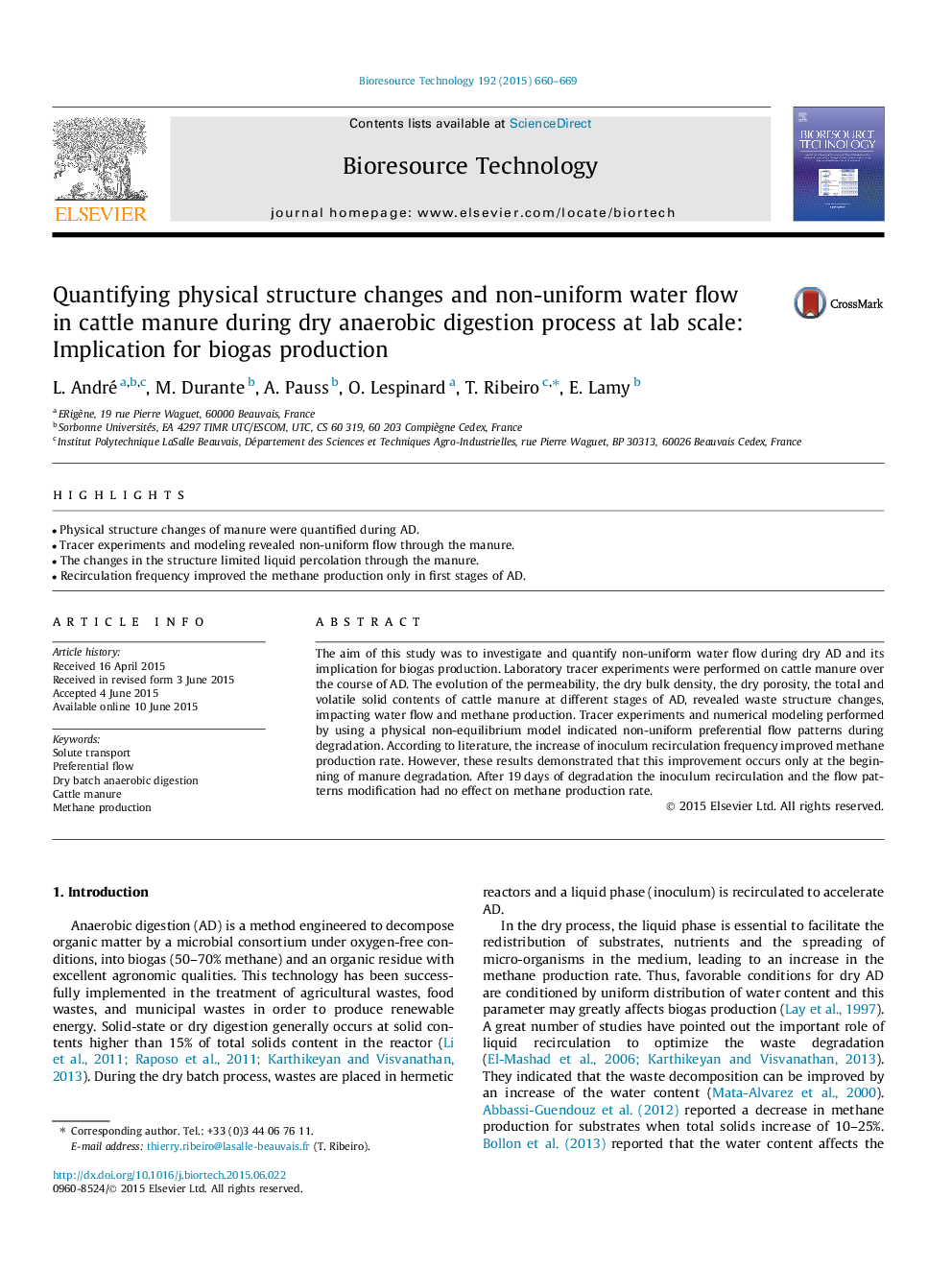| Article ID | Journal | Published Year | Pages | File Type |
|---|---|---|---|---|
| 7074342 | Bioresource Technology | 2015 | 10 Pages |
Abstract
The aim of this study was to investigate and quantify non-uniform water flow during dry AD and its implication for biogas production. Laboratory tracer experiments were performed on cattle manure over the course of AD. The evolution of the permeability, the dry bulk density, the dry porosity, the total and volatile solid contents of cattle manure at different stages of AD, revealed waste structure changes, impacting water flow and methane production. Tracer experiments and numerical modeling performed by using a physical non-equilibrium model indicated non-uniform preferential flow patterns during degradation. According to literature, the increase of inoculum recirculation frequency improved methane production rate. However, these results demonstrated that this improvement occurs only at the beginning of manure degradation. After 19Â days of degradation the inoculum recirculation and the flow patterns modification had no effect on methane production rate.
Related Topics
Physical Sciences and Engineering
Chemical Engineering
Process Chemistry and Technology
Authors
L. André, M. Durante, A. Pauss, O. Lespinard, T. Ribeiro, E. Lamy,
